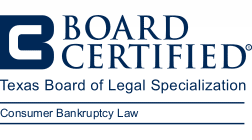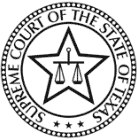Houston, TX Bankruptcy Attorney
Experienced Debt Relief Attorney Serving the Houston Area
Both individuals and businesses that are overwhelmed with debt can take advantage of the bankruptcy process to get out of debt and receive a fresh start. Debt can come from many different sources. Individual people and families might face anything from crushing medical debt to credit card debt that grows exponentially after a single missed payment during a difficult month. An escrow change or missed payment can cause your mortgage or vehicle payment to spiral. Small companies that have been successful for a long time might find that a sudden change in demand for their products or services means they cannot continue making payments towards their company credit card, or they may fall behind on rent.
The Fealy Law Firm, PC is here to help those who have fallen behind on debt repayment find relief from overwhelming financial obligations. Experienced Texas debt relief lawyer Vicky Fealy will take a complete accounting of your finances to help you choose the right course of action. This includes determining whether bankruptcy is the best choice for you and if so, which bankruptcy chapter you should use. There are multiple ways to approach your bankruptcy, and the choice is yours.
What Not to Do When Considering Filing for Bankruptcy
There are many financial moves you may be tempted to make when you are planning to file for bankruptcy in the near future. However, making a mistake in the weeks leading up to your bankruptcy declaration could complicate the process significantly. If you are considering filing for bankruptcy soon, you should not:
- Sell property - If you suspect that your assets are going to be liquidated under Chapter 7, it may be tempting to sell off some of those assets yourself and use the money on something that cannot be liquidated, like a vacation. This can be seen as a means of avoiding repayment.
- Transfer assets to others - Some people facing bankruptcy believe they can avoid having an asset liquidated by placing it in another person's name while continuing to use the asset. For example, someone may try to "save" his or her luxury vehicle by signing it over to a family member on paper and then continuing to drive it. Businesses may attempt to transfer assets to another company with the same owner or owners. This can lead to serious trouble.
- Take on new debts - If you are about to declare bankruptcy, it may seem like you could take on new debt consequence-free and have those obligations discharged when you receive debt relief. Actions like taking out a new credit card and maxing it out with no intention of making payments on it can be treated as fraud.
- Deplete retirement accounts - It is best to avoid using money saved in retirement accounts to pay debts or other expenses. These funds are covered by bankruptcy exemptions, and you may need them to ensure that you will be able to meet your needs in the future.
It is important to follow your attorney's advice as you prepare for bankruptcy. With proper preparation, you can make sure you will be prepared to address your debts and receive the fresh start you deserve.
Types of Bankruptcy Individuals or Corporations Can Use
Most people will have two options for filing for bankruptcy:
- Chapter 7 - This is the type of bankruptcy that generally involves liquidating your assets to pay back as much of your debt as you can. The benefit of this chapter is that the rest of your debt is instantly cleared, and you may be able to use exemptions to avoid the loss of most or all of your assets.
- Chapter 13 - If you are willing to keep making a single monthly payment toward your debt for several years, you can avoid liquidation by choosing a Chapter 13 bankruptcy. Most of your disposable income will go toward making this monthly payment. At the end of a three-to-five-year term, the rest of your debt will be cleared. Chapter 13 can be a valuable tool in dealing with missed mortgage or vehicle payments, foreclosures, repossessions, and IRS issues. It can also be very beneficial in consolidating debt if you do not qualify for Chapter 7 due to income or asset qualifications.
Corporations may have additional options, including:
- Chapter 5 - This form of bankruptcy, which is defined under Chapter 11, Subchapter V, may be accessible to smaller businesses that plan to keep operating. Subchapter V was specifically created to provide relief and streamline the process for small businesses that wish to stay operational. Your company will need to continue making payments toward its debts, but it can stay open.
- Chapter 11 - If you have a large and complex corporation, you may be required to use this form of bankruptcy. This is a highly complex process that involves grouping your creditors and negotiating with them. Your corporation can stay open, but it will be required to reorganize its operations and keep making payments.
Contact a Bankruptcy Lawyer Serving Houston, TX and the Surrounding Areas
The Fealy Law Firm, PC is committed to helping people and businesses achieve lasting debt relief through bankruptcy. Experienced Texas debt relief attorney Vicky Fealy will work with you to choose the right strategy. Contact us at 713-526-5220 for a complimentary consultation.












